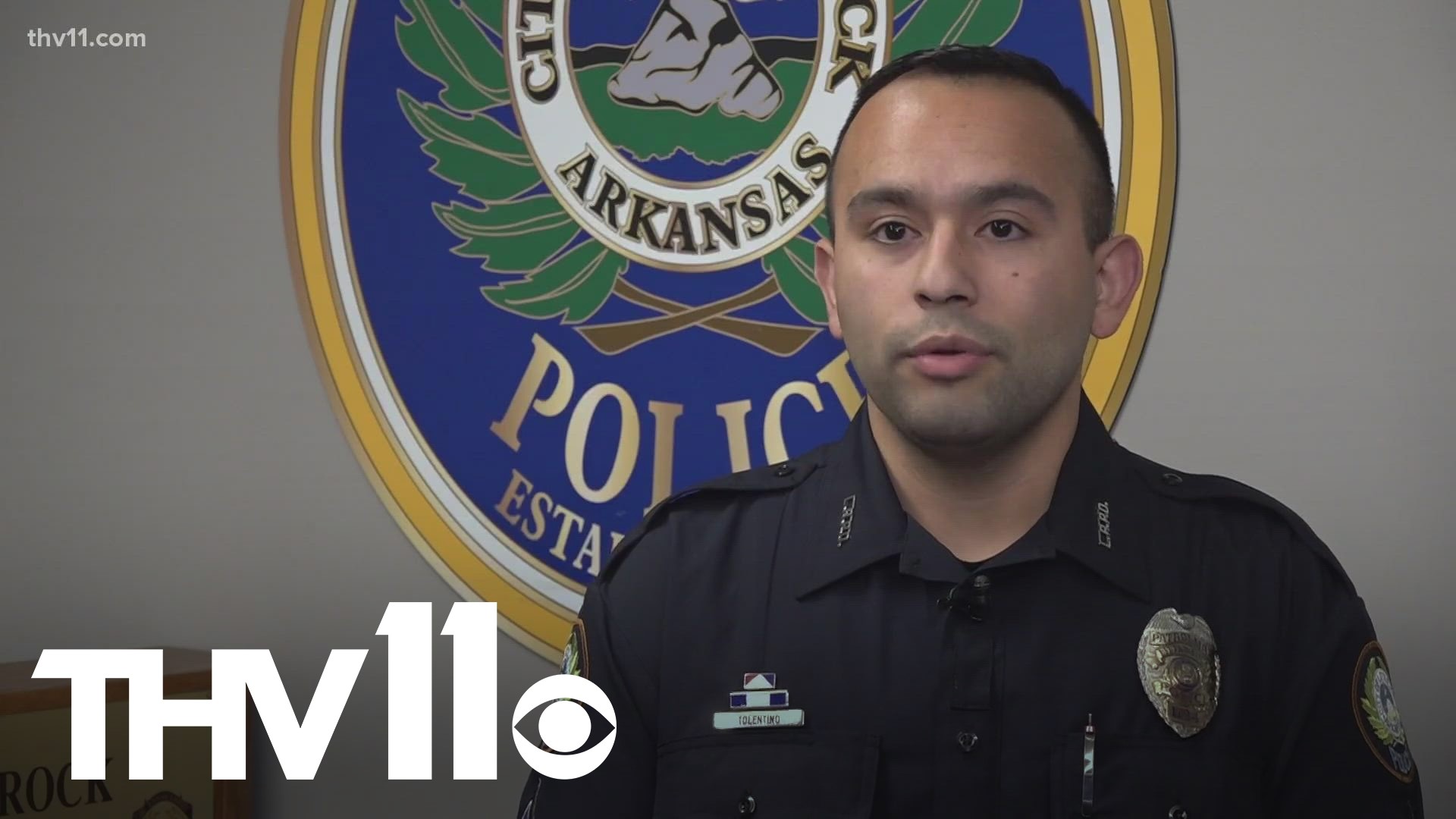LITTLE ROCK, Ark. — A police officer's job isn't always about fighting crime.
Oftentimes, the Little Rock Police Department (LRPD) responds to calls regarding someone in a mental illness situation.
"It's a new world," LRPD Spokesperson Mark Edwards said. "Things are done differently now and so we've got to adapt to the times."
And the department is doing that by using a program known as Crisis Intervention Training, also known as CIT.
The program allows police to recognize when people are experiencing mental illness.
"When we encounter these situations out in the field, we need to know how to respond and how to react," Edwards said.
Arkansas law requires at least 20% of a police department's force to have this 40-hour training.
LRPD Officer Johnathan Tolentinio is among the 196 officers in the department CIT certified.
"We do scenarios [and] we get different doctors that come in and talk to us," Tolentino said.
Tolentino said the public often perceives people with mental illness as trouble.
"When they call it in," Tolentino said. "They assume that this person is on some kind of narcotics or something just because of their bad behavior."
Tolentino described a situation where the training came in handy when he was dealing with someone experiencing a mental health emergency.
"Once you get there, [we] talk to them and level with them," Tolentino said. "[We] kind of ask him a few more questions rather than just see what they're doing."
Tolentino believes the training reaches people and gives officers a chance to help.
"The very last thing we want to do is take anyone to jail for that," Tolentino said.
Instead, officers can bring people to the LRPD's Crisis Stabilization Unit.
"They have the house you there, they have doctors," Tolentino said. "I go in there and kind of work with you [and] provide medication."
After an assessment, people can have a two to four-day voluntary stay.
Additionally, doctors can get the person into a 30-day program to assist with alcohol and substance abuse if needed.
The department has two social workers to help the city's homeless population or assist people suffering from mental illness.
LRPD is also looking to hire two more social workers and get more officers CIT certified.

